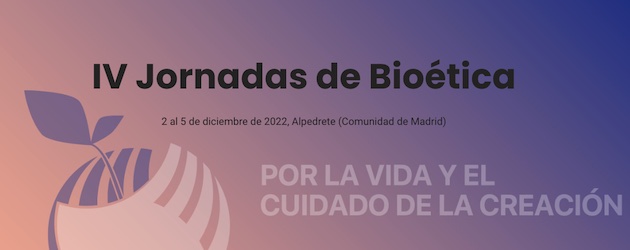“The challenges in bioethics have increased in just a decade”
Eleven years later, Spanish evangelicals will gather for a new Bioethics congress. Non-Christians are welcome in a programme that will address issues such as euthanasia, artificial intelligence, and creation care.
Protestante Digital · MADRID · 22 JUNE 2022 · 15:00 CET

Euthanasia, surrogacy, artificial intelligence or climate emergency are some of the challenges that will be addressed in the 4th Bioethics Congress, where expert speakers will give a biblical perspective on issues that are increasingly present in society.
Organised by the Evangelical Council of Madrid (CEM), the Spanish Evangelical Alliance (AEE) and the Spanish Graduate Bible Groups (GBG), the event has the support of several evangelical organisations from all over Spain.
The previous edition was held 11 years ago, and questions about life and ethics have changed, as well as the complexity of the scenarios that any Christian faces in different areas.
Key questions
“We aim to respond to concerns and questions that believers may have in the face of the changes in the law that we have been experiencing in recent years”, points out Rosa María López Posteguillo, from the Bioethics Working Group of the Spanish Evangelical Alliance.
The theme chosen is “For Life and the Care of Creation”, because the event “is very focused on the questions that Christians have to answer in their workplace and with their friendships, or for a pastor who has to respond to ethical questions”, says Jaume Llenas, coordinator of Graduate Bible Groups.
“We want to help the church and society to reflect on the foundations and values of our Christian faith, on which the rights of the individual are based”, underlines López.
She explains that “it is a great project that we have been working on since before the pandemic, with great enthusiasm and effort, with a multidisciplinary team, in order to help to form criteria” .

Accessible training
The Bioethics Congress will take place from 2 to 5 December in a town in Madrid with an ambitious programme, with plenary sessions, seminars and biblical presentations that will focus on key aspects of this subject.
It will be a place for dialogue on complex issues that do not always find adequate space in the ecclesial sphere. There will be training on topics such as euthanasia, surrogacy, artificial intelligence, genetics, conscientious objection and suicide, among others.
The main plenary talks will be given by John Wyatt, Emeritus Professor of Neonatal Paediatrics at University College London and author of the books Matters of Life and Death and Dying Well. He will address questions about the beginning and end of life, our responsibility for the care of creation and the future challenges in bioethics.
The biblical presentations will be given by psychiatrist and speaker Pablo Martínez Vila, and theologian and pastor José Moreno Berrocal. They will explore the issue of human dignity, a key theme in addressing many of the ethical debates that are most present in our society today.
A programme for everyone
“It is important for anyone who comes to think about the family, the church, but also about non-believers, who rarely have the chance to listen to a Christian worldview: a different perspective on life, the goodness and love of God. It is an event that can therefore lead us to strengthen our family, church and society”, says Llenas.
The schedule also includes a children's programme, as well as the participation of professional groups that will also address key issues in their own areas.
Registration is available on the congress' website (in Spanish), and the deadline for discounted registration ends on 8 October.
Published in: Evangelical Focus - science - “The challenges in bioethics have increased in just a decade”
